Flood Damage Cleaning and Restoration
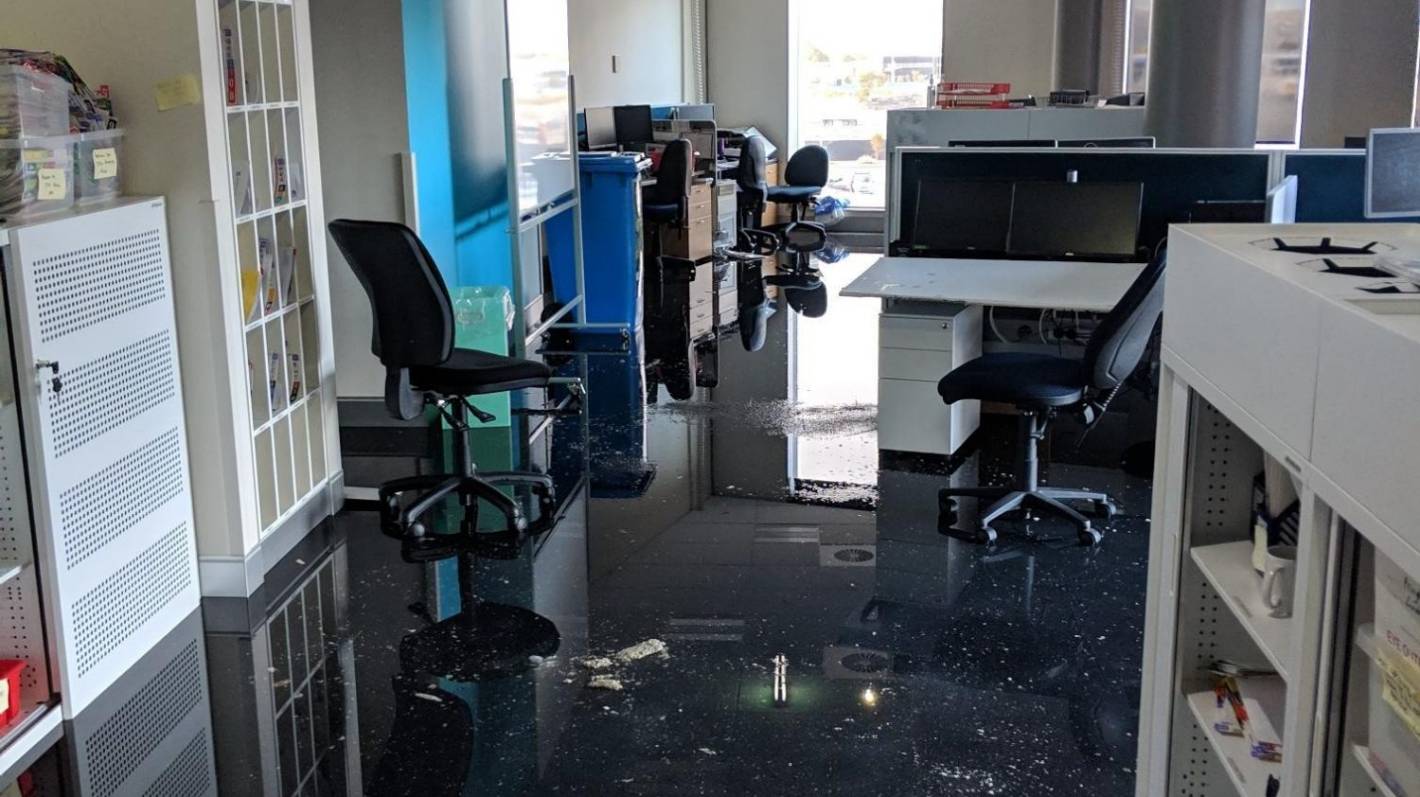
Flood & Storm Damage Cleaning
We’ll restore your water-damaged commercial, industrial or residential property quickly, efficiently and to the highest standard.
If your property has been flooded, it’s important to act quickly to minimise the damage.
Our team of experienced flood damage restoration specialists will get your property dry, clean and back to normal as quickly as possible.
Coventry & Warwickshire Flood Damage Restoration Service
We understand that flood damage can be a very stressful experience, so we’ll do everything we can to make the process as smooth and easy as possible for you.
If you have any questions or would like to speak to someone about our services, please don’t hesitate to contact us.
According to an FMJ article on the impact of flooding on businesses, the average cost of flood damage to businesses is £82,000, and studies show that small firms may lose up to 50 working days when they suffer flooding.

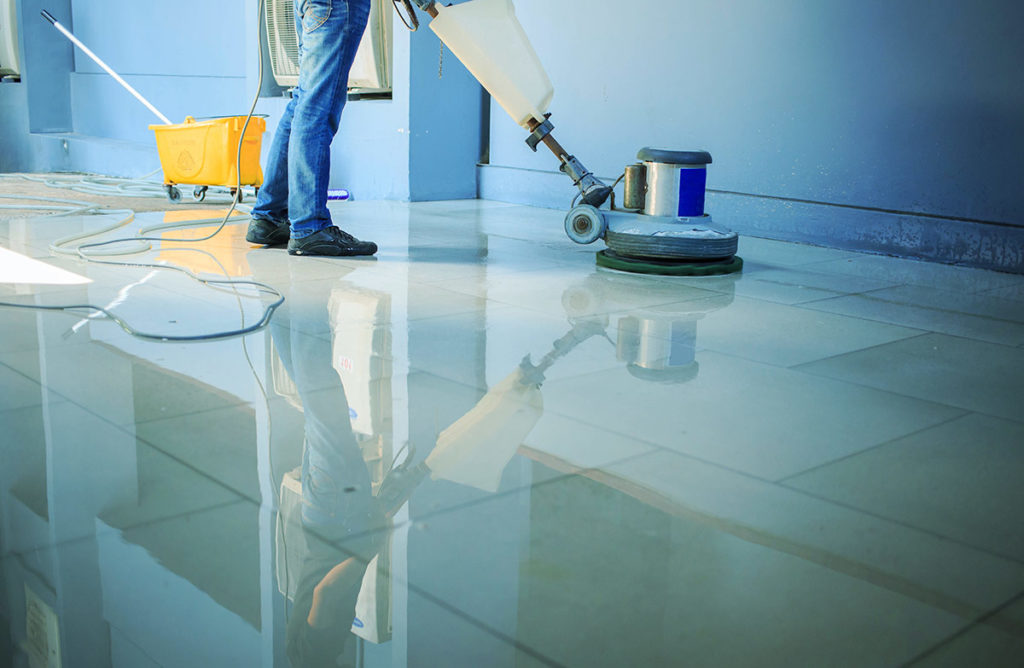
Emergency Flood Damage Cleaning West Midlands
Cleaning up a flooded property can be a big job. Not only do you have to deal with the water damage itself, but you also have to worry about the potential for mould and mildew growth.
Our team of experts will make sure that your property is cleaned and dried thoroughly to prevent any further damage, looking at the type of property and its construction, as well as the amount of water and time involved in the flooding.
We understand that dealing with flood damage can be a stressful experience, which is why we offer a complete restoration service, from start to finish.
We’ll work with you to assess the damage and devise a plan of action. We’ll then carry out the restoration work quickly and efficiently, using the latest equipment and techniques.
The Flood Damage Restoration Process
Professional flood damage cleaning services usually involve the following:
- An initial assessment of the damage to your property
- Removal of any standing water
- Drying out of wet areas
- Structural drying
- Cleaning and sanitisation of all affected areas
- Dehumidification to prevent mould and mildew growth
- Odour control
- Repair and restoration work
After you’ve given us the call, our water damage restoration experts will visit your property as soon as possible to inspect the affected area. They’ll then use the latest equipment, tools and techniques to remove any standing water and moisture.
Once it’s completely dry, our team will get to work cleaning and restoring the building, as well as your contents. This includes furniture, upholstery, fine art and documents.
We’ll even sanitise, deodorise and remove any waste from your home or business to ensure a clean and safe environment.
Once the restoration work is complete, we’ll conduct a final inspection to make sure that your property is back to its pre-flood condition.
Where To Get Help After Flooding
If you need help during a flood, visit the GOV.UK website for useful information and advice, including how to prepare your business for flooding.
Contact your insurance company as soon as possible to start a claim. A loss adjuster will be appointed to assess the damage to your property and contents. Your utility companies may also be able to help if your property has been flooded.
It’s important to have your building checked for structural damage before restoration work starts and a qualified electrician will need to check your electrical installation and issue a safety certificate before you can use it again.
If you’re a business owner, the local Chamber of Commerce can offer advice and support.

Emergency Contacts
Warwickshire Police / West Midlands Police
Call 999 if there is an immediate risk to life call the police. Use 101 if it is not an emergency.
Environment Agency Floodline
0345 988 1188 to report a flood or if your property is at risk of flooding from a reservoir, river or coastal water.
Severn Trent
Call 0800 783 4444 to report emergencies or if flooding is from sewers or burst water mains. You can also report a flood to Severn Trent online.
Power cuts
Call 105 or go to the Powercut 105 website to report a power cut, find your electricity supplier or get updates when your electricity has been cut off.
Other Useful Contacts
The Association of British Insurers – Flood Re
GOV.UK – Flooding advice and information
Coventry City Council – Flooding advice and information
Warwickshire County Council – Flooding advice and information
Get flood warnings and advice in England
The National Flood Forum is a charity offering free help and support to anyone affected by flooding and advises small businesses to prepare for flooding and make sure adequate insurance cover is in place.
Depending on the cause of the flood, your water provider may be able to help with cleaning up after a flood. If the flood was caused by the public sewage system, your water company will usually be able to assist you in starting cleaning up after the water has subsided.
A Future Floods report by the government’s Office of Science and Technology advised that over two million properties in the UK were at risk of flooding.
Urgent Assistance
For emergency cleaning services, contact us right away to get the process started. Our emergency cleaning services will help you recover from any disaster, big or small. Contact us now for a free quote and to get started.
Storm Damage
If your premises have been affected by a storm, it's important to take action as soon as possible to minimise the damage. We can remove any debris and damaged items from your property and start the restoration process as soon as you're ready.
Water Damage
Water damage can be caused by flooding, burst pipes or leaks should be dealt with as soon as possible to prevent further damage. Our water damage restoration specialists will get your property back to its best as soon as possible.
What else can I do to prepare for water damage?
There are things you can do to minimise the impact of flooding, as well as preparing ahead of time. Your local council can offer assistance but it’s important to remember that resources will be stretched during a major incident.
Make sure you have adequate insurance cover in case your property floods and check what’s covered . You should also check your policy excess as this is the amount you will have to pay towards any claim.
Some insurers offer cover for properties that are at risk of flooding and it is worth considering this if you live in an area that’s prone to flooding. The Association of British Insurers has a list of insurers who offer flood insurance.
Don’t wait until it happens – you might not have time. The Flood Hub has a business flood plan template you can download for free.
Put together a kit of essential items you would need to take with you if you had to evacuate your workplace. This could include any important documents, phone chargers, first-aid kit and medication.
You may also want to consider investing in flood-resistant products for your business, such as water-resistant doors and windows, or even relocating key equipment to a safe area.
If you have expensive, specialist or essential equipment, think about how you could protect it from flood water. Could you move it to a higher level or raise it off the ground?
You may also want to consider investing in flood guards or barriers.
Sandbags are of little use on their own, but when used with plastic sheeting, they can be quite useful if your premises are in a high-risk area and you think there is a chance of flooding.
You can buy sandbags from builders’ merchants or some local councils offer a free sandbag filling service.
If you live in a high-risk area or near a water course, you may want to consider investing in additional flood protection measures. The National Flood Forum has produced an independent directory of flood protection products and services called the Blue Pages. Alternately, you can call the National Flood Forum on 01299 403055.
Leaks can be prevented by cleaning out leaves and debris from guttering and drain covers, which will avoid blockages that might cause flooding in heavy rain.
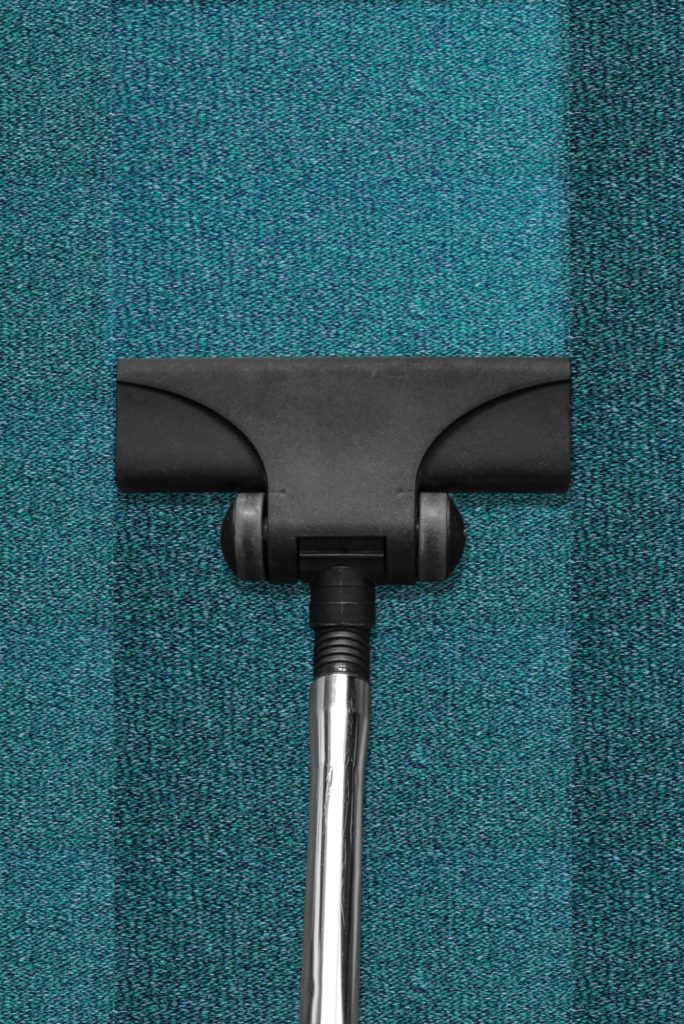
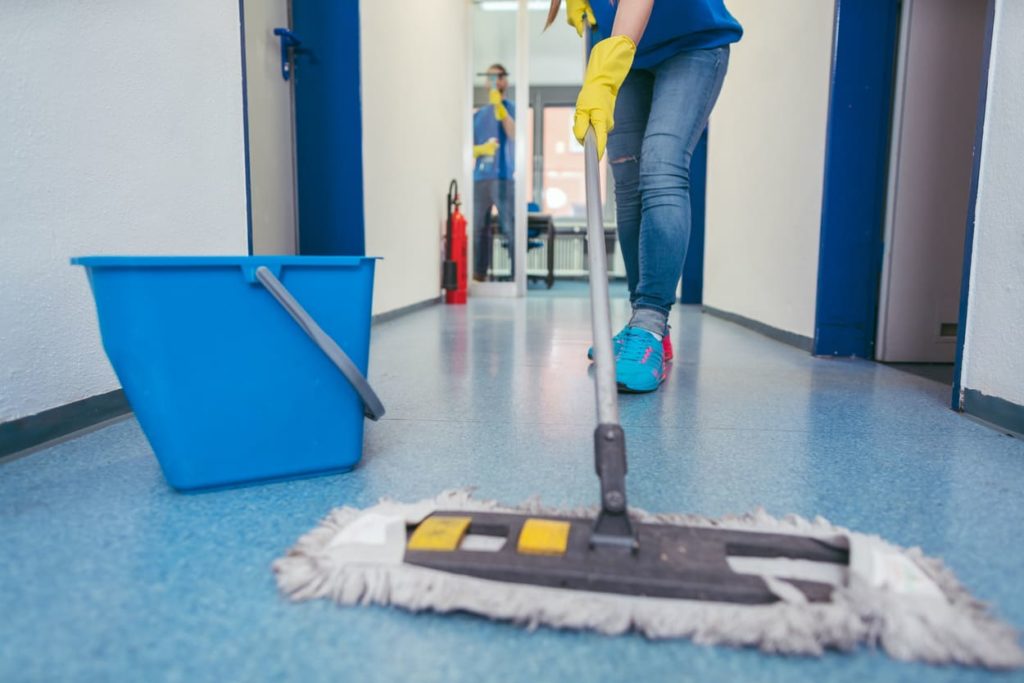
What to do if your business has been flooded:
1. Notify your insurance company that the property has been flooded
Contact your insurance company as soon as possible, even if you don’t know the extent of the damage. Your insurance provider will let you know if they can provide an alternative place to work as well as emergency funds to allow your business to continue operating.
If you’re a tenant, your landlord’s insurance will cover the cost of repairing flood damage to the property.
2. Contact your utility companies for advice
Contact your electricity, gas and water suppliers as soon as possible after a flood. They may be able to provide emergency services or alternative arrangements while the repairs are being carried out.

3. Check for structural damage
It’s important to have your building checked for structural damage by a qualified surveyor or engineer before any flood restoration work starts as the building could be unsafe.
4. Remove any standing water and dry the property
Once you’ve been given the all-clear, start removing any standing water from the property using pumps, buckets or mops. If the floodwater is dirty, wear rubber boots and gloves to avoid coming into contact with contaminated water.
Excess water can be disposed of by flushing toilets and emptying bathtubs, sinks and washing machine drains. Once the building is empty of water, open doors and windows to let fresh air circulate and speed up the drying process

5. Clean and disinfect the property
All surfaces that have been in contact with floodwater must be cleaned and disinfected as soon as possible to prevent mould and bacteria from growing.
Any carpets or upholstered furniture that have been damaged by floodwater will need to be professionally cleaned or replaced.
6. Ventilate the property to start the drying process
Once the property is dry, open doors and windows to let fresh air circulate as this will help to prevent mould growth. If the weather is cold, you may need to use a dehumidifier or fan heater to dry the air inside the property.
Commercial properties such as offices and industrial units will usually need several industrial-sized fans to dry the building quickly.
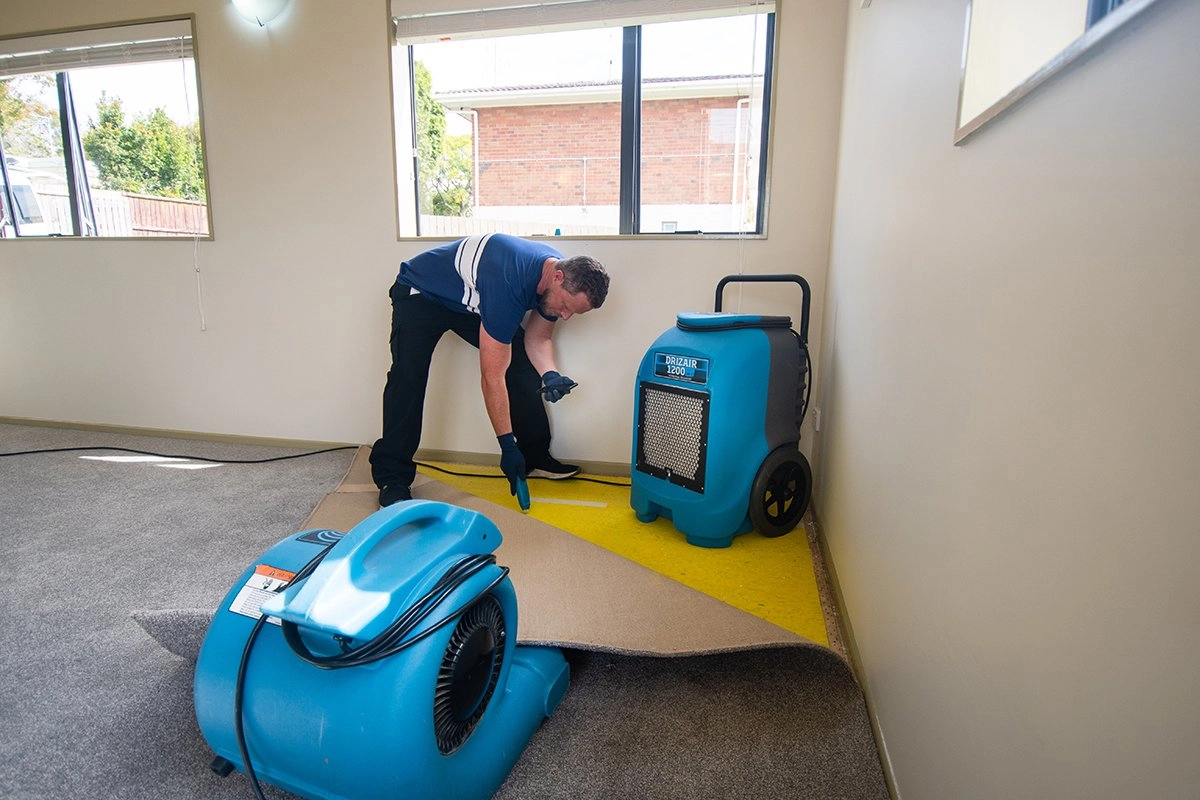
7. Check for mould growth
Mould can still grow even when you’ve taken steps to clean and disinfect everything. Mould can start to appear within 24-48 hours if the conditions are right, so it’s important to keep an eye out for any signs of mould growth.
You may need to remove and dispose of any mouldy materials, such as carpets, curtains or furniture to stop the mould from spreading.
8. Check for damage to electrical appliances
Any electrical appliances and I.T equipment that have been submerged in floodwater will need to be properly checked and serviced by a qualified electrician before they can be used again.
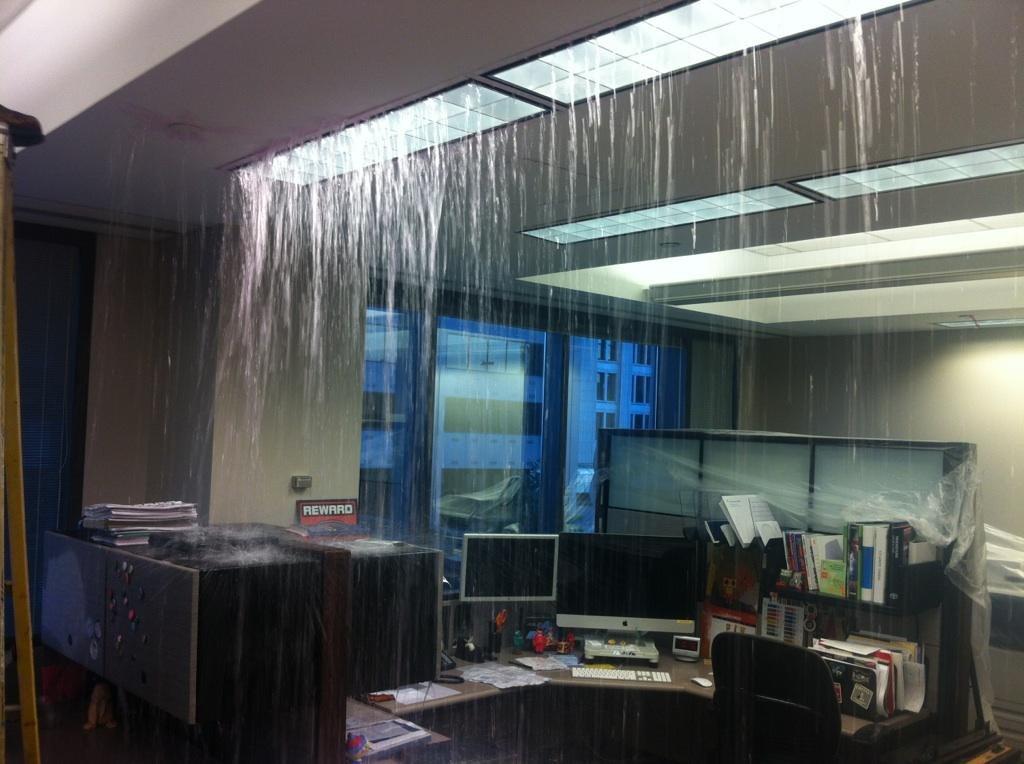
9. Notify your customers
Let your customers know that you’re open for business as soon as possible. You can do this by updating your website, sending emails or using social media. Your local authority and chamber of commerce may also be able to help you spread the word and offer more specific advice and support.
10. Restore your electricity and gas supply
Once you’ve checked that it’s safe to do so, you can restore your electricity and gas supply. A qualified electrician will need to check your electrical installation and issue a safety certificate before the electricity can be turned back on.

11. Restore damaged items
If your belongings have been damaged by floodwater, you may be able to restore them yourself or hire a professional restoration business to assist. Depending on the severity of the damage, some items may not be able to be restored and will need to be replaced.
If your flood damage was due to sewerage issues, any porous materials will need to be disposed of as they can’t be cleaned or restored. This includes materials such as carpets, rugs, bedding, cushions, soft furnishings and anything made from natural fibres.
Non-porous items such as metal, glass or plastic can usually be cleaned and disinfected if they’ve been affected by sewage water but it’s important that the items are properly cleaned and sanitised as soon as possible.
12. Dispose of flood-damaged items
Once you’ve assessed what can and can’t be saved, you’ll need to dispose of the damaged items. This is usually best left to a professional waste disposal company as they will have the necessary equipment to safely remove and dispose of the items.
Specialist companies like Biffa offer hazardous waste disposal services and can provide you with the right advice on how to safely remove and dispose of any flood-damaged items.
13. Use professional flood restoration services
If you’re not sure where to start, you’re overwhelmed by the damage or you don’t feel confident in your ability to clean and restore your property, it’s always best to get professional help.
A quick online search will bring up plenty of specialist cleaning companies that offer flood damage cleaning and restoration services, so it’s important to choose a reputable company with experience in dealing with flood-damaged properties.
Some insurers will appoint their preferred local cleaning companies or they’ll ask you to get quotes from three different companies before they’ll authorise the work.
Our commercial cleaners and flood restoration specialists in Nuneaton and Warwickshire can help you get your property back to its best as soon as possible.
14. Keep receipts and records of any repairs or replacement items
Once the clean-up is complete, you’ll need to keep all receipts and records of any repairs or replacement items as you may be able to claim these back on your insurance.
Make sure you get several quotes before choosing a company and always ask to see their insurance policy to make sure they’re fully covered for the work they’ll be carrying out.
If your property is insured, check with your insurer to see if they have a list of preferred suppliers that you can use.
15. Prevention is better than cure
Once the immediate danger of flooding has passed, it’s important to take steps to prevent any future flooding. This may involve making some changes to your property, such as installing flood defences or raising electrics and gas meters above the flood risk level.
You should also check to see if you live in a flood-risk area and, if so, whether you’re eligible for flood insurance.
Flood Damage Cleanup: Summary
Flooding can be a devastating event but, with the right preparation and knowledge, you can minimise the damage to your property and get your life back to normal as soon as possible.
If your home or business has been affected by flood water, it’s important to take action as soon as possible to minimise the damage. Flood damage can be extensive and costly to repair, so it’s important to get professional help as soon as possible.
Kaplan Cleaning Services offers flood damage restoration services across Nuneaton, Coventry and Warwickshire as well as the wider West Midlands area. We’re available 24 hours a day, 7 days a week and our team of experienced flood restoration specialists are on hand to help you get your property back to its best as soon as possible.
Contact the Kaplan Cleaning team on 024 7705 5971 today for a free quote.
Have you been affected by flooding? What tips would you add to this list? Let us know in the comments below.

